The TP-Link Deco X60 is a whole-home mesh network system, it uses the most modern Wi-Fi 6 technology to help eliminate dead spots in your home. While Deco X60 performance won’t disappoint, it’s fast enough, easy to use, and offers a lifetime subscription to TP-Link HomeCare security tools, which is an excellent value.
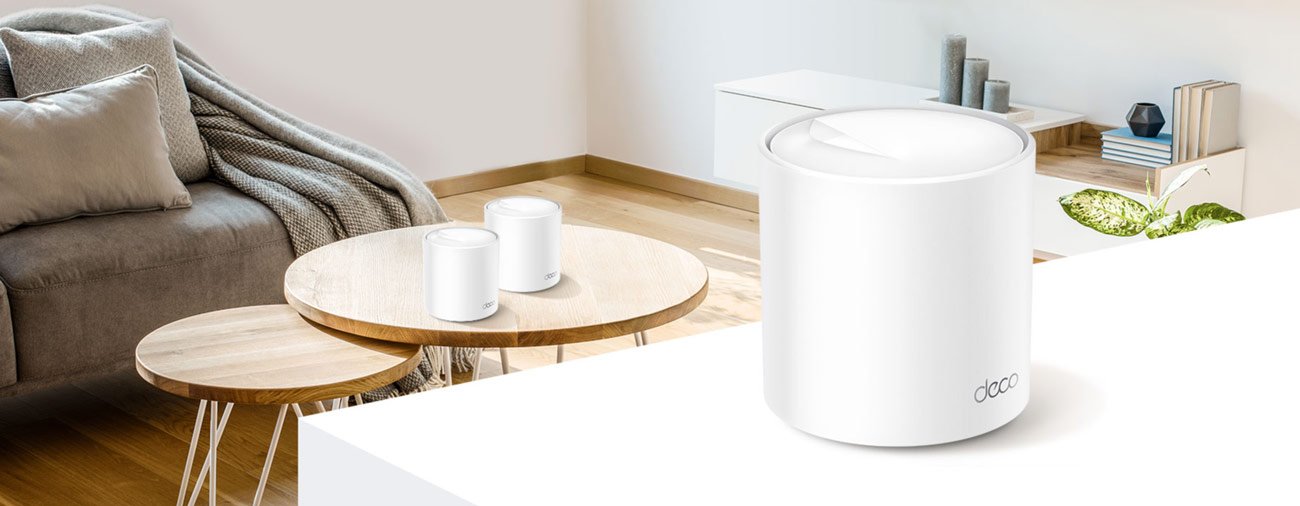
TP-Link Deco X60 Pros and Cons
TP-Link Deco X60 Design
The TP-Link Deco X60 keeps the same minimalistic design approach, created by three white cylindrical nodes that have been optimally incorporated into modern decor spaces. The unit has six antennas, but they are all hidden within the device and there are no exposed antennas. The Deco X60 provides up to 7,000 square feet of coverage, while a two-pack system can cover up to 5,000 square feet. It now comes to 180 euros (3 units), so it’s very good value. Dimensions of the Deco X60: 110 x 110 x 114 mm. It might not have the same discreet elegance of the Deco M9 Plus, but it is smaller than the TP-Link Deco M4. The base features LED indicator lights that turn on/off based on which set up mode it is in, and will flash brightly blue when pairing with a new node for use, are lit green when everything is normal, or red if the node has connection issues.
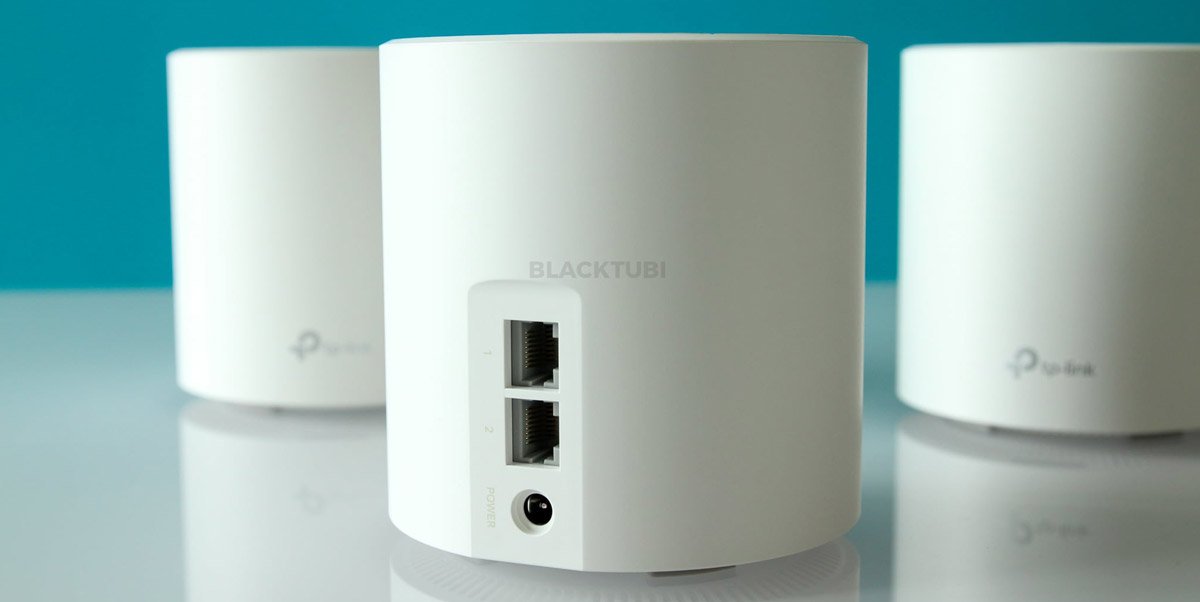
We will find two gigabit LAN ports and a power socket on the back; On the Deco X60 bottom, there is a reset button. Let me tell you that the ASUS ZenWiFi AX XT8 Wi-Fi system is not equipped with USB or even several gigabit ports. On Deco X60 inside, you will find the four internal antennas as well as a 1 GHz quad-core CPU and 802.11ax radios sanctions. The Deco X60 is a six-stream dual-band AX3000 mesh network system, with 574 Mbps on the 2.4 GHz band and up to 2,402 Mbps on the 5 GHz band. It employs all the latest Wi-Fi 6 technologies, such as 1024 QAM, Orthogonal Frequency Division Multiple Access (OFDMA) data transmission, WPA3 encryption, MU-MIMO simultaneous data streams, band steering and direct-to-client signal beamforming. Wireless backhaul is not compartmentalized into its own dedicated band on the system, but it does support wired backhauling from one of the LAN
TP-Link Deco X60 Feature
- WiFi 6 Mesh speeds up to 5,400 Mbps—4,804 Mbps on 5 GHz and 574 Mbps on 2.4 GHz; Greater reduction in latency enables more responsive gaming and video chatting, covering the whole home mesh wifi 6 in your home.
- Ultra-Low Latency Greater – reduction in latency enables more responsive gaming and video chatting, enjoy the speed of AX5400 WiFi 6 Mesh Router
- One Unified Network Multiple – units form a whole-home mesh network that auto-selects the best connection as you move around your home.
- TP-Link HomeShield – Whole network protection & robust parental controls, free lifetime IoT security
- Easier Than Ever Setup – simple setup through the Deco app.
TP-Link Deco X60 Specifications
| Brand | TP-Link |
| Model name | Deco X60 |
| Special feature | Parental Control,Alexa Compatible,QoS,Aimesh |
| Frequency band class | Dual-Band |
| Standards and Protocols | Wi-Fi 6 IEEE 802.11ax/ac/n/a 5 GHz IEEE 802.11ax/n/b/g 2.4 GHz |
| WiFi Speeds | AX5400 5 GHz: 4804 Mbps (802.11ax) 2.4 GHz: 574 Mbps (802.11ax) |
| WiFi Range | 4-7+ Bedroom Houses (3-pack) |
| Guest Network | 1× 5 GHz Guest Network 1× 2.4 GHz Guest Network |
| Dimensions (W×D×H) | 4.33 × 4.33 × 4.49 in (110 × 110 × 114 mm) |
| Compatible devices | Laptop, Personal Computer, Tablet, Smart Television, Smartphone |
| Included components | Deco X60 (3-pack) 3 Deco X60 Units 1 RJ45 Ethernet Cable 3 Power Adapters Quick Installation Guide |
TP-Link Deco X60 Performance
The TP-Link Deco X60 had a solid showing in our throughput performance tests but it trailed the more expensive Wi-Fi 6 mesh systems that we’ve tried out. Our close range (same room) benchmark saw the Deco X60 hitting 758 Mbps, which is well ahead of most Wi-Fi 5(802.11ac) mesh routers on the market that tend to score around 540 Mbps. Deco X60 was considerably off the performance pace set by Wi-Fi 6-based routers, such as the Linksys Velop MX10, Netgear Orbi RBK852 and Asus ZenWiFi XT8 that it outperformed by more than 100 Mbps. Velocity was headlined by the Velop MX10 with a score of 865 Mbps. On our longer 30-foot test, the Deco X60 hit 290 Mbps which is slower than many other routers but not by much. Comes first, with ZenWiFi XT8 347Mbps ·
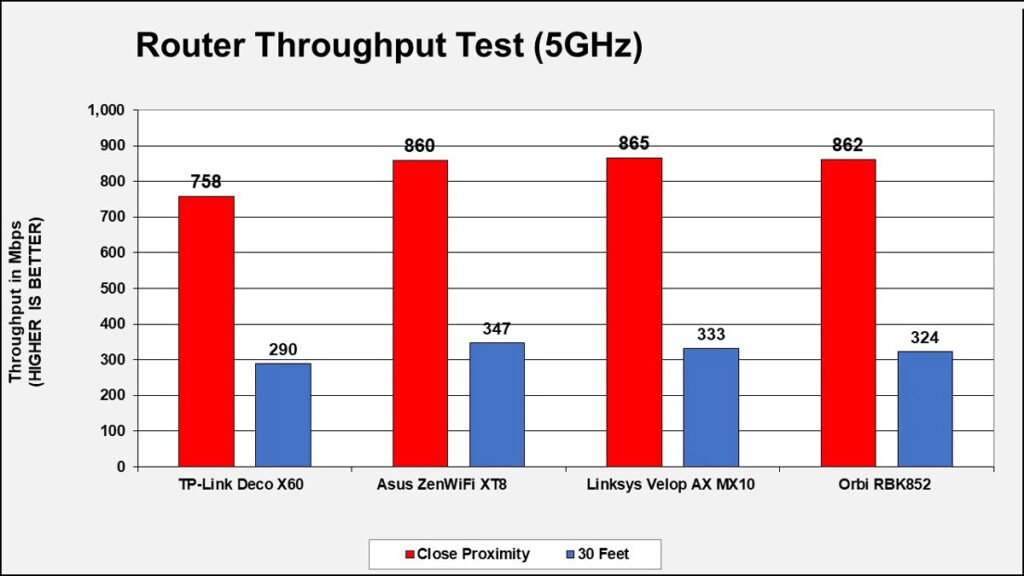
Deco X60 Satellite Node A weak performer on its own. Its 521 Mbps on the close-range testplace last among this group of contenders, with a 154Mbps gap between it and our winner there, the Asus ZenWiFi XT8. Both the Linksys Velop MX10 and Netgear Orbi RBK852 blew past it by more than 100 Mbps. On the 30-foot test, the Deco X60 node registered 386 Mbps. The result was 233 Mbps slower than the ZenWiFi XT8 node. The Deco X60 is also a dual-band system, so it does not benefit from an additional 5GHz band for backhaul as some top systems do, such as the Linksys Velop AX MX10, Netgear Orbi AX600 RBK852 and Asus ZenWiFi AX XT8.
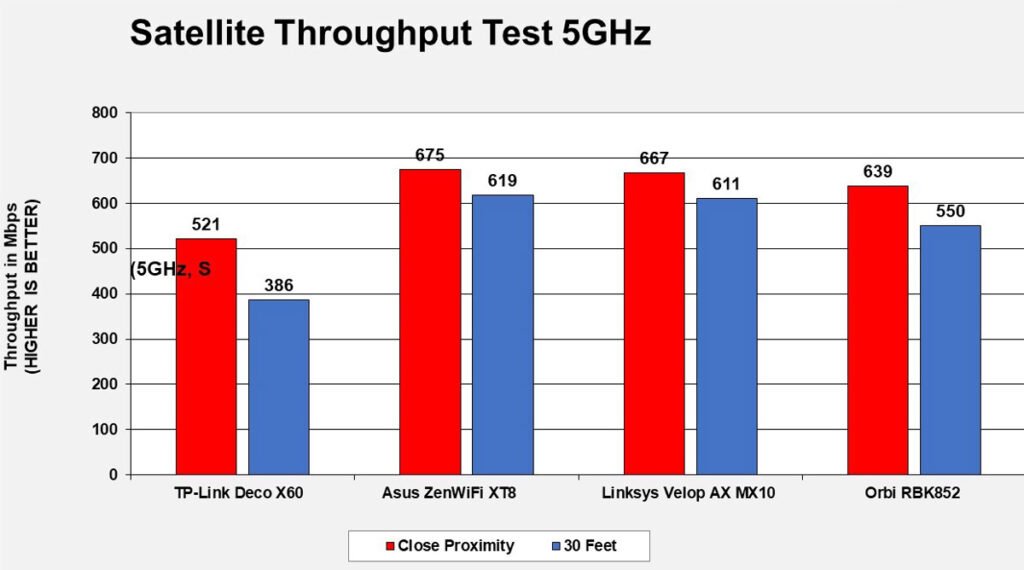
TP-Link Deco X60 Setup
Setup of the TP-Link Deco X60 is just really simple. We had the Deco X60 up and running in no time, with the entire process requiring only the download of the Deco app and the creation of an account. After that, we simply clicked ‘Start,’ selected the Deco X60 from the Deco model list, and followed the instructions to turn off the modem. We connected the Deco node to the modem using the provided LAN cable and then turned on both the modem and the Deco node simultaneously.
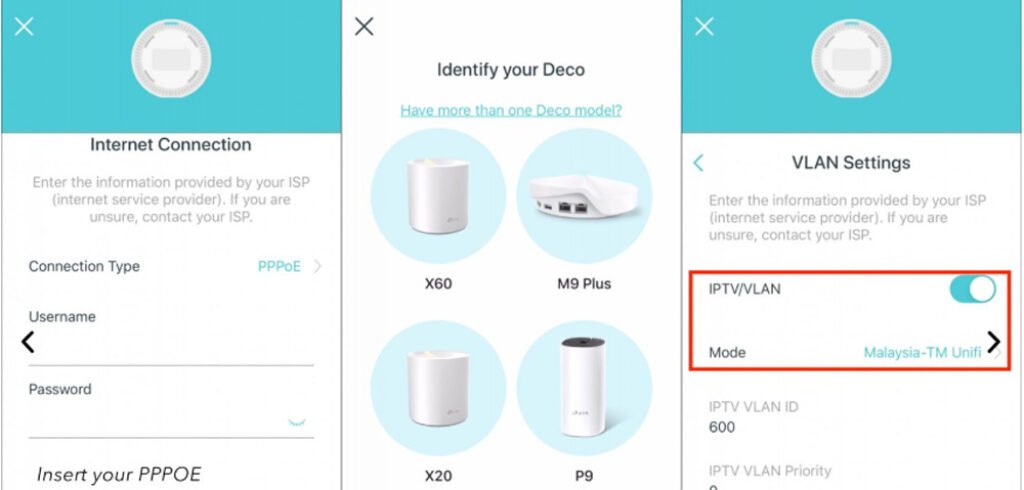
That LED quickly switched to flashing blue, signalling that the node was ready for setup! Our primary approach to completing this was to open our phone’s Wi-Fi settings, connect to the Deco SSID, wait a few seconds for the app go find the node, name it (office), and let it set up an internet conection using DHCP with default MAC settings. To finish, we gave the new network a name and password, connected phone to the new SSID, and it was all setup! We clicked on Next where the walkthrough instructed us on adding the additional nodes, which it took about 30 seconds for them to start answering. We named the location for each node, and after a 5min firmware update we were up and running.
TP-Link Deco X60 Firmware
TP-Link Deco app worked well on our test. Its a responsive, easy to use. It lists out all devices that are connected and indicates how fast the internet is for each device right now This system also features guest WiFi a function, which not all Mesh WiFi systems but provides room for Your accommodation audience. The Deco X60 has been treated with a built-in HomeCare security suite from TP-Link, which provides more robust antivirus and parental control capabilities. Update: the enhanced antivirus capabilities are indeed free for only 3 months; after that, a subscription is required. However, they include a firewall on the Deco X60 to keep your network safe.
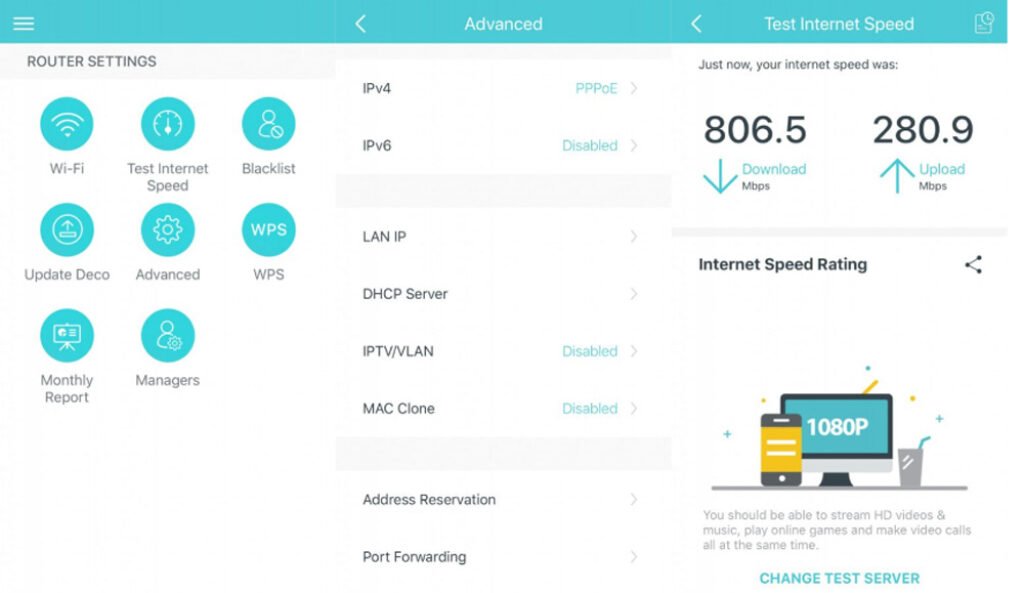
The parental controls of TP-Link are still one of the best out there. You can pick and choose which devices you want to restrict and what content categories you would like to block. This includes restricting content to devices on the network: for instance, you can enforce a ban on streaming and social media sites for certain units. You can also set daily internet time limits using more advanced features bundled in parental controls such as when to move the internet off for individuals. Advanced lots of different features are there but hidden here. The built-in Speedtest is awesome, as the system firmware can be updated to the latest easily via the Deco app. This is still a Mesh WiFi system but you can do anything with that what you can do with standard wireless router Port forwarding, dynamic DNS, and fixed DHCP leases settings are still present.



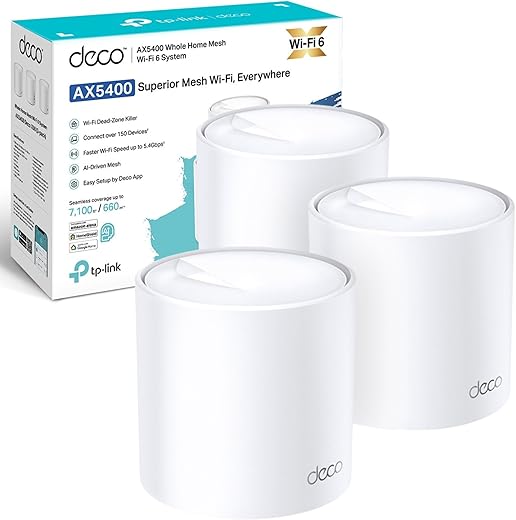
 Amazon.co.uk
Amazon.co.uk 



